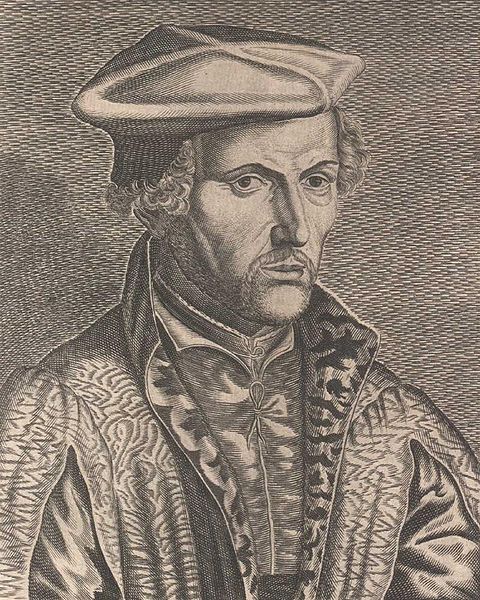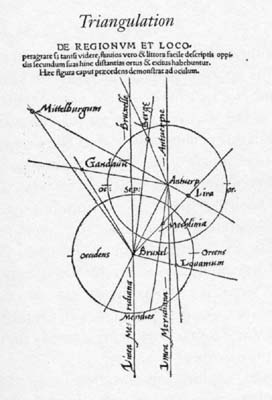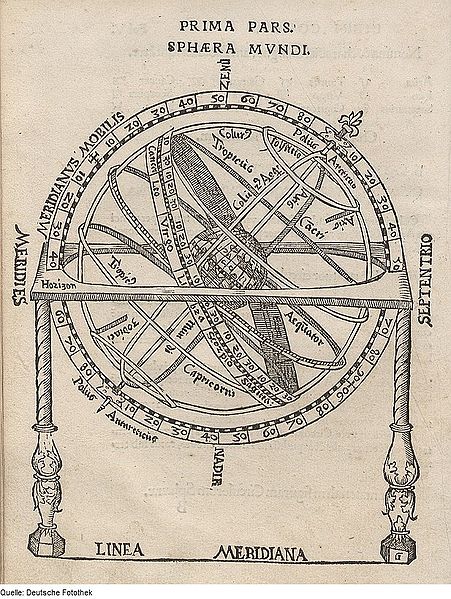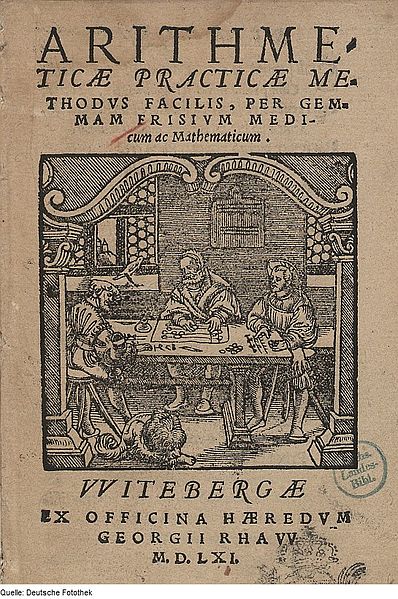<Back to Index>
- Cartographer Gemma Frisius, 1508
- Architect John Dobson, 1787
- 10th President of Italy Carlo Azeglio Ciampi, 1920
PAGE SPONSOR

Gemma Frisius (born Jemme Reinerszoon) (December 9, 1508 – May 25, 1555), was a physician, mathematician, cartographer, philosopher, and instrument maker. He created important globes, improved the mathematical instruments of his day and applied mathematics in new ways to surveying and navigation.
He was born in Dokkum, Friesland (present day Netherlands) of poor parents, who died when he was young. He moved to Groningen and studied at the University in Leuven beginning in 1525. He received the degree of MD in 1536 and remained on the faculty of medicine in Leuven for the rest of his life. His oldest son, Cornelius Gemma, edited a posthumous volume of his work and continued to work with Ptolemaic astrological models.
While still a student, Frisius set up a workshop to produce globes and mathematical instruments. He became noted for the quality and accuracy of his instruments, which were praised by Tycho Brahe, among others. In 1533, he described for the first time the method of triangulation still used today in surveying. Twenty years later, he was the first to describe how an accurate clock could be used to determine longitude. Jean - Baptiste Morin (1583 – 1656) did not believe that Frisius' method for calculating longitude would work, remarking, "I do not know if the Devil will succeed in making a longitude timekeeper but it is folly for man to try."
Frisius created or improved many instruments, including the cross - staff, the astrolabe and the astronomical rings. His students included Gerardus Mercator (who became his collaborator), Johannes Stadius, John Dee, Andreas Vesalius and Rembert Dodoens.
A lunar crater has been named after him.


